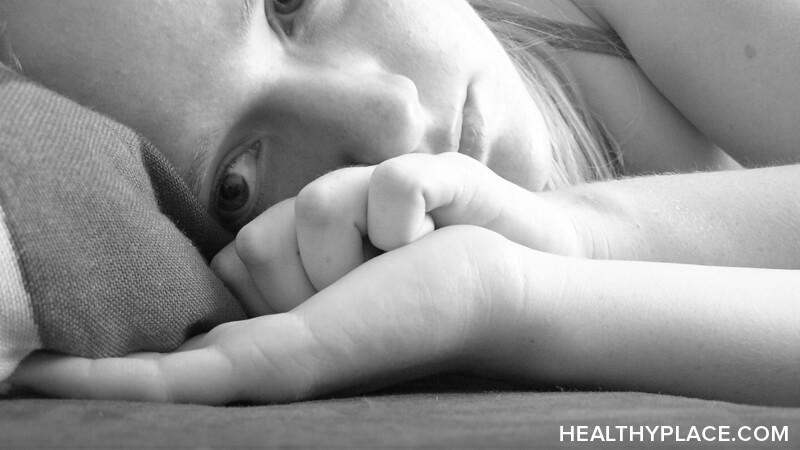Those Struggling with Mental Health Are Trying to Get Well

One of the most pervasive stigmas of mental illness is the idea that people struggling with their mental health aren't trying hard enough to get better. There's this idea that those with similar, the same, or worse struggles have made it through a tough time so everyone else should be able to. But it's not that simple and people need to stop saying it is. People struggling with their mental health are trying to be well, and the struggle is harder than you think.
A Day in My Life When I'm Struggling with My Mental Health
I know what it's like to struggle with my mental health. When things are tough, a day in my life can be my depressed, anxious, or suicidal thoughts consuming every single moment.
Imagine this: No matter what you're doing, the negativity crawls into your activities and blinds you to everything else. Every waking, and sometimes even sleeping, thought turns to ending your life. The weight of depression is a drowning force and anxiety sending your thoughts into a tailspin as you will your heart to slow down. Driving to work is spent warding off intrusive thoughts, you're distracted from your favorite show because you can't get your mind to stop repeating how worthless you are, and time with friends becomes shadowed by thoughts of not being alive much longer.
When this happens, every fiber of my being is honed in on making it through each moment. Breathing is a task and living is no longer a simple act of existence, but something that needs focus to accomplish. In those moments, that's all there is.
When I Struggle with My Mental Health There Is Often No Solution
It seems people don't understand the amount of effort that goes into living like this. We're literally trying with all we are to make it to the next breath. When consumed by the negatives of mental health struggle, it's often difficult to even conceptualize recovery or treatment.
Apart from that, this stigma-driven mentality of people struggling with their mental health not trying also ignores important factors that are often barriers to recovery.
- Recovery services aren't always available. Having access to recovery isn't as easy as people would like to believe. Many communities don't have the infrastructure or they just don't see mental health as important, leaving gaps in the system for those seeking help.
- Wait times can be astronomical. When services are available, the wait times to see someone are likely to become the next barrier. Depending on the depth of the struggle, having to wait a few weeks can have a severe, negative impact.
- Not everyone can afford treatment. Even where I am in Canada, where we boast of universal healthcare, mental health services aren't always free of charge. While taking care of our health, should be a priority, sometimes we're not able to take on the financial burden ("The Financial Struggle of Seeking Mental Health Help").
What to Do Instead of Saying Someone Struggling with Mental Health Isn't Trying
The easiest way to help someone going through mental health struggles is to reach out to them with specific asks or suggestions of how you can help. For example, instead of saying, "I'm here if you need anything," say, "I can help you look up treatment options," or something as simple as "I can give you a ride to work." I see this as being more effective because you're leaving less room for the person struggling to feel like they're bothering you by asking something of you.
There are, of course, many other ways to help someone going through a mental health struggle, but asserting they're not trying isn't one of them. So please, stop saying that.
APA Reference
Barton, L.
(2019, July 29). Those Struggling with Mental Health Are Trying to Get Well, HealthyPlace. Retrieved
on 2026, March 5 from https://www.healthyplace.com/blogs/survivingmentalhealthstigma/2019/7/those-struggling-with-mental-health-are-trying-to-get-well
